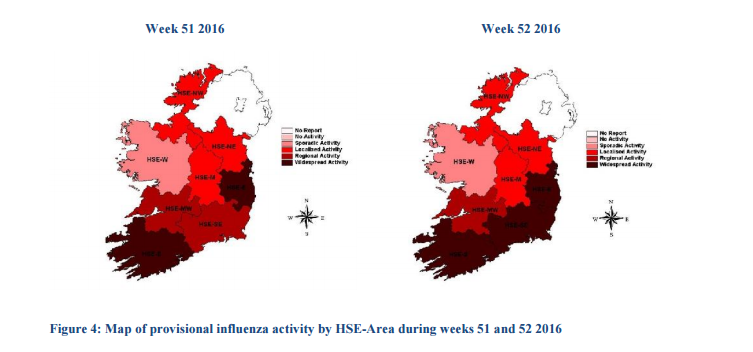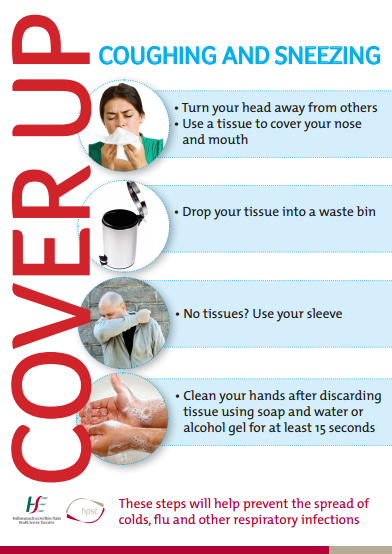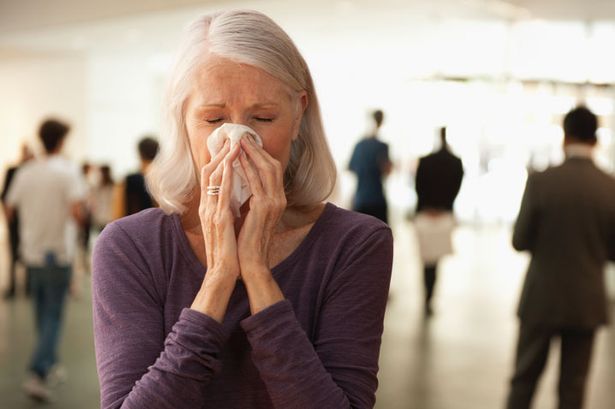Seven people have died from influenza this season.
A report released by the Health Protection Surveillance Centre outlines that those who died were aged 60 years of older; five had influenza A(H3), one with influenza A (not subtyped) and one with influenza B.
Influenza A(H3) is the predominant influenza virus circulating this year.
Influenza outbreaks and hospitalisations are currently at high levels and are continuing to increase, mainly affecting those over 65 years of age.
This follows Donegal GP Dr James McDaid’s warning about the flu virus and advised that schools should remain closed after the Christmas break to prevent the outbreak of an epidemic.
A report issued by the HPSC also report that the proportion of influenza-related calls to GP out-of hours services increased during the last two weeks of 2016; reaching the highest level reported since the 2010/11 season.
The majority of influenza and ARI (acute respiratory infection) outbreaks to date were in residential care facilities or community hospitals, mainly affecting those aged 65 years and older.
The H.S.E. advise people that it is not too late to get vaccinated as the virus is thought to circulate until mid February.

Source: hpsc.ie
A spokesperson for the H.S.E. says; “The influenza vaccine is available free of charge from GPs for all people in at risk groups, and from pharmacists for everyone in risk groups aged 18 years and over. An administration charge may apply to people who don’t hold medical cards or GP visit cards.
“Vaccination remains the most effective means of preventing infection by seasonal influenza viruses and can reduce severe disease that can lead to hospitalisation and death.
“Anyone who gets flu should stay at home, rest, drink plenty of fluids and use over-the-counter remedies like paracetamol to ease symptoms.
“Advice, tips, information and videos on getting over flu and other common illnesses are available at a new HSE website, www.undertheweather.ie. Anyone in one of the high-risk categories should contact their GP if they develop influenza symptoms. GPs may wish to prescribe antivirals for those presenting with influenza in the high risk groups.
“Covering your nose and mouth with a tissue when you cough and sneeze (catch it), disposing of the tissue as soon as possible (bin it) and cleaning your hands as soon as you can (kill it) are important measures in helping prevent the spread of germs and reducing the risk of transmission.

Those within the at-risk categories are;
>All those aged 65 years and older
>People including children with chronic illness requiring regular medical follow-up such as chronic lung disease, chronic heart disease, chronic neurological disorders, neurodevelopmental disorders and diabetes
>Those with lower immunity due to disease or treatment
>All pregnant women. The vaccine can be given at any stage of pregnancy.
>Those with morbid obesity i.e. Body Mass Index ≥ 40
>Residents of nursing homes, old people’s homes and other long stay facilities
>Health care workers and carers of those in at-risk groups.
For more information you can view the full report or you can visit www.hpsc.ie.
Tags:





